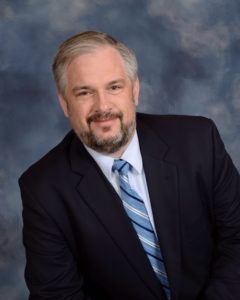
Ten Baptists Everyone Should Know: William Carey
William Carey (1761-1834) was born on August 17, 1761 in a tiny village called Paulerspury in Northamptonshire, England. His parents, who were of humble background, were devout adherents to Anglicanism. Though he came from a family of weavers, by the age of sixteen Carey would be apprenticed to a shoemaker in Piddington (about seven miles from his home). One of his fellow apprentices, a young man named John Warr, was a dissenting Christian. While attending Congregationalist meetings with John in a nearby village, Carey came under deep conviction of his sin and need for Christ. He would eventually come to put his complete trust in Christ crucified.
Carey would eventually leave the Church of England and attend the Congregationalist church through whose ministry he had been converted for the first few years following his conversion. During these years, Carey painstakingly searched the Scriptures in order to establish his faith on the Word of God alone. His careful study of Scripture led him to reject the practice of infant-baptism (which was practiced by both the Church of England and Congregationalists). In 1783 William Carey was baptized by John Ryland, Jr. who co-pastored with his father, John Ryland, Sr. at the College Lane Baptist Church in Northampton. Ryland the younger, who would together with Carey and others would be instrumental in the formation of the Baptist Missionary Society in 1792, could not have foreseen the role that Carey would play in the history of Christianity as “the father of modern missions.”
While serving as the pastor of a small Baptist church in Leicester in 1792, Carey would offer two contributions that served as a catalyst for the establishment of a missionary society. For one thing, Carey published a book titled An Enquiry into the Obligations of Christians, to Use Means for the Conversion of the Heathen. This work, which was divided into five sections, (1) discussed the theological implications of Matthew 28:19-20; (2) outlined the history of missions since the days of the apostles; (3) surveyed the state of the world in Carey’s day; (4) answered various objections to sending out missionaries; and (5) indicated the immediate practical steps which could be taken, namely the establishment of a missionary society. Also in 1792, Carey preached a sermon based on Isaiah 54:2-3 at his local associational meeting, often called the “Deathless Sermon,” in which he called upon his hearers to trust in a great God and attempt great things for Him. The sermon is known by its two major divisions: “Let us expect great things.” and “Let us attempt great things.” This has led to the commonly quoted epigram: “Expect great things from God; attempt great things for God.” Since no sermon manuscript survives it is unclear whether Carey actually ever said that exact sentence, nevertheless it seems to faithfully summarize the essence of his message. These two actions are commonly regarded as key stimuli in the development of the modern missionary movement, hence the moniker “the father of modern missions.”
In October of 1792, Carey along with his friends Andrew Fuller, John Ryland and John Sutcliff formed the Particular Baptist Society for the Propagation of the Gospel Amongst the Heathen (later known as the Baptist Missionary Society and today as BMS World Mission). As noted in the original name of the society, Carey and his friends were Particular Baptists (i.e., Calvinists). Their commitment to missions flowed from their theological commitment to an evangelical Calvinism nurtured through the writings of the New England divine and Great Awakening preacher Jonathan Edwards. In April of 1793, Carey and his family set sail from England to Calcutta as the first missionaries of the fledgling missionary society. A gifted linguist, in his lifetime Carey was able to see his mission print and distribute the entire Bible or in parts in 44 different languages and dialects.
Just before he died in India on the 9th of June 1834, Carey gave specific instructions that these words from an Isaac Watts’ hymn be inscribed on his tombstone: “A wretched, poor, and helpless worm, On Thy kind arms I fall.” This self-assessment matches that shared with one of his last visitors, a Scottish missionary named Alexander Duff. Duff spent much time rehearsing the great accomplishments of Carey during his lifetime. As Duff prepared to leave the room, Carey admonished Duff with these words: “Mr. Duff, you have been speaking about Dr. Carey, Dr. Carey; when I am gone, say nothing about Dr. Carey, — speak about Dr. Carey’s Saviour.” This was the heart of the man rightly acknowledged today as “the father of modern missions.”
Recommended Resources
To read more about Carey, please see Timothy George’s excellent treatment in Faithful Witness. Also in print from Wakeman Trust is S. Pearce Carey’s (a great-grandson) much-acclaimed biography, William Carey. You may also want to check out the movie, Candle in the Dark. A recent study which serves as an excellent introduction to Carey is John Appleby’s I Can Plod: William Carey and the Early Years of the First Baptist Missionary Society. A great website providing information on all things Carey is the Center for Study of the Life and Work of William Carey, D.D. (1761-1834).
You can download and read Carey’s manifesto An Enquiry into the Obligations of Christians, to Use Means for the Conversion of the Heathen (PDF). Also available in electronic format from Google Books is The Serampore Letters: Being the Unpublished Correspondence of William Carey and Others with John Williams, 1800-1816. Another great resource is “The Serampore Form of Agreement” (PDF) which was an agreement upon a missionary policy between the first three missionaries of the BMS: Carey, Joseph Marshman, and William Ward.
*This is part two of ten of an ongoing series by Steve Weaver. See part one on William Kiffin and part two on Benjamin Keach.

